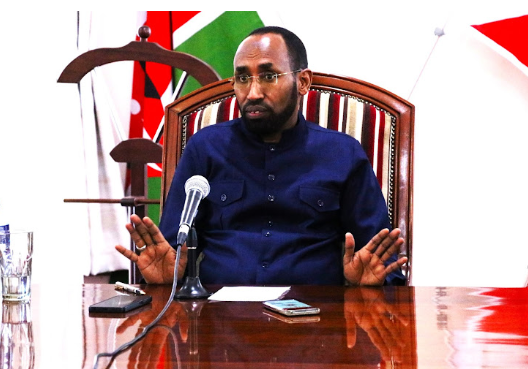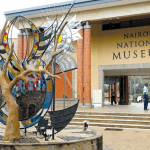The prolonged closure of Kenya-Somalia border points, initially intended to curb terror attacks by the Somalia-based terrorist group al Shabaab, is now adversely affecting legitimate businesses, according to local leaders.
The once-bustling markets along the border route are now mostly shuttered, and money-changing kiosks stand empty. These markets previously thrived on goods imported into Kenya. The closed border points include Mandera-Bulla Hawa, Liboi-Dhobley, and Kiunga-Ras Kamboni.
Mandera, once a thriving trade hub, has become a major smuggling center. Essential goods like sugar, powdered milk, rice, and pasta are smuggled into Kenya from Bulla Hawa in Somalia, while items such as maize flour, construction materials, tanks, detergents, and medical supplies are illegally exported from Kenya into Somalia. Mandera East Deputy County Commissioner Patrick Meso says that while officials are aware of the smuggling, they are unable to stop it.
“These movements do not happen in the dark; officials are aware, although we do not encourage it. The trade between the two borders is very minimal, mostly sustenance goods, as sourcing food from Nairobi is very expensive,” Meso explains.
“The distance from here to Mogadishu is shorter than from Nairobi, so by the time goods from Nairobi reach here, the prices are exorbitant for the local people. Consequently, most household products are being sourced from across the border.”
Meso notes that with the official entry and exit points in Mandera remaining idle, trans-border activities have shifted to unauthorized entry points, depriving both national and county governments of potential revenue.
Mandera county officials assert that the decision to close the border was opposed by North Eastern region leaders, who instead proposed deploying troops along the border. This proposal was rejected. “The closure of official entry points was meant to control the illegal flow of weapons, people, and contraband, but it hasn’t achieved this goal, as we still face attacks by militants using illegal routes to enter the country,” says Mandera Governor Mohamed Adan Khalif.
“Closing the border doesn’t make sense for us. We have had discussions with all successive governments, and President William Ruto has indicated that it will reopen soon.”
Local leaders are expressing concern over the negative impact of the prolonged closure of Kenya-Somalia border points, which was initially intended to combat terror attacks by the Somalia-based terrorist group al Shabaab.
The once-busy markets along the border route are now largely closed, with money-changing kiosks left empty. These markets previously thrived on goods imported into Kenya. The closed border points include Mandera-Bulla Hawa, Liboi-Dhobley, and Kiunga-Ras Kamboni.
Mandera, formerly a bustling trade center, has now become a major smuggling hub. Essential goods like sugar, powdered milk, rice, and pasta are smuggled into Kenya from Bulla Hawa in Somalia, while items such as maize flour, construction materials, tanks, detergents, and medical supplies are illegally exported from Kenya into Somalia.
Mandera East Deputy County Commissioner Patrick Meso admits that while officials are aware of the smuggling, they are unable to prevent it.
“These movements do not happen in the dark; officials are aware, although we do not encourage it. The trade between the two borders is very minimal, mostly sustenance goods, as sourcing food from Nairobi is very expensive,” Meso explains. “The distance from here to Mogadishu is shorter than from Nairobi, so by the time goods from Nairobi reach here, the prices are exorbitant for the local people. Consequently, most household products are being sourced from across the border.”
Meso adds that with the official entry and exit points in Mandera remaining idle, trans-border activities have shifted to unauthorized entry points, depriving both national and county governments of potential revenue.
Mandera county officials assert that the decision to close the border was opposed by leaders from the North Eastern region, who instead proposed deploying troops along the border.
This proposal was rejected. “The closure of official entry points was meant to control the illegal flow of weapons, people, and contraband, but it hasn’t achieved this goal, as we still face attacks by militants using illegal routes to enter the country,” says Mandera Governor Mohamed Adan Khalif.
“Closing the border doesn’t make sense for us. We have had discussions with all successive governments, and President William Ruto has indicated that it will reopen soon,” Khalif added.



